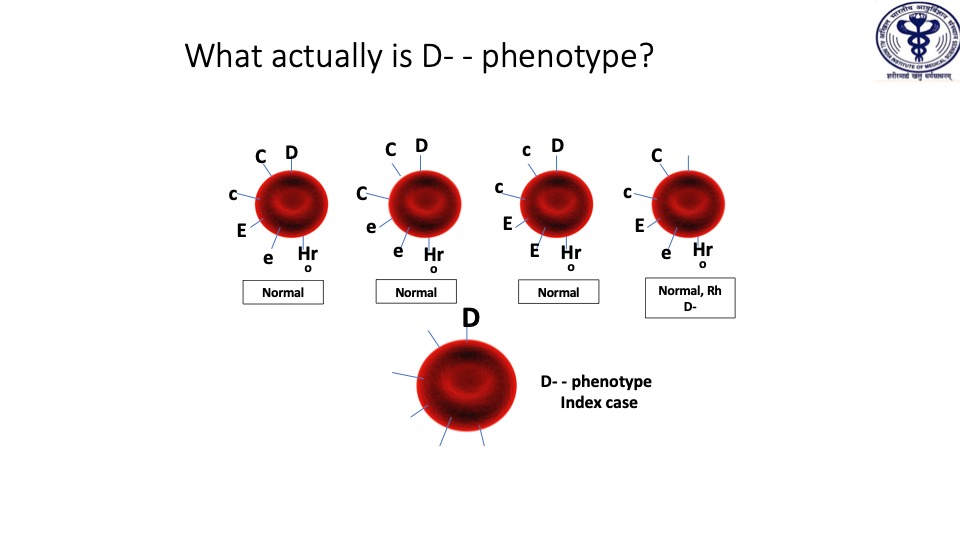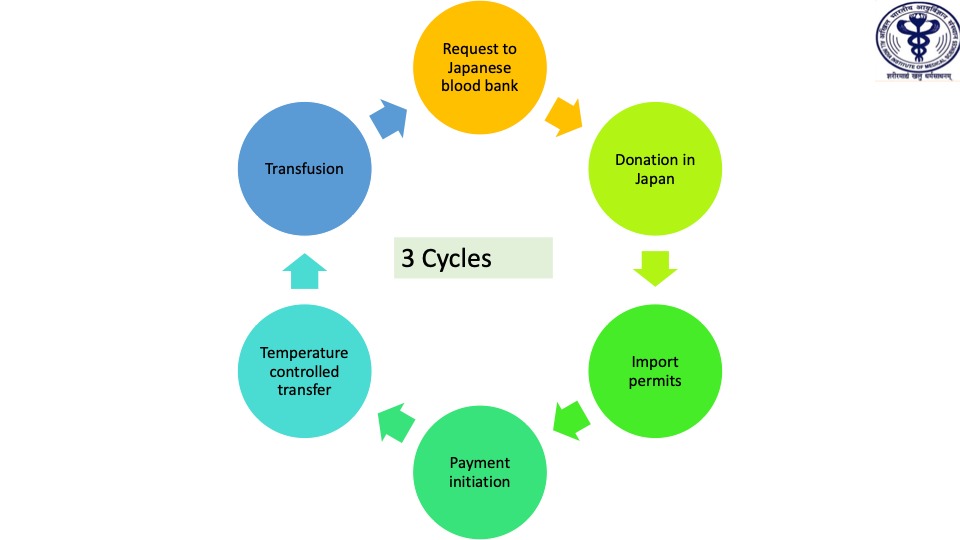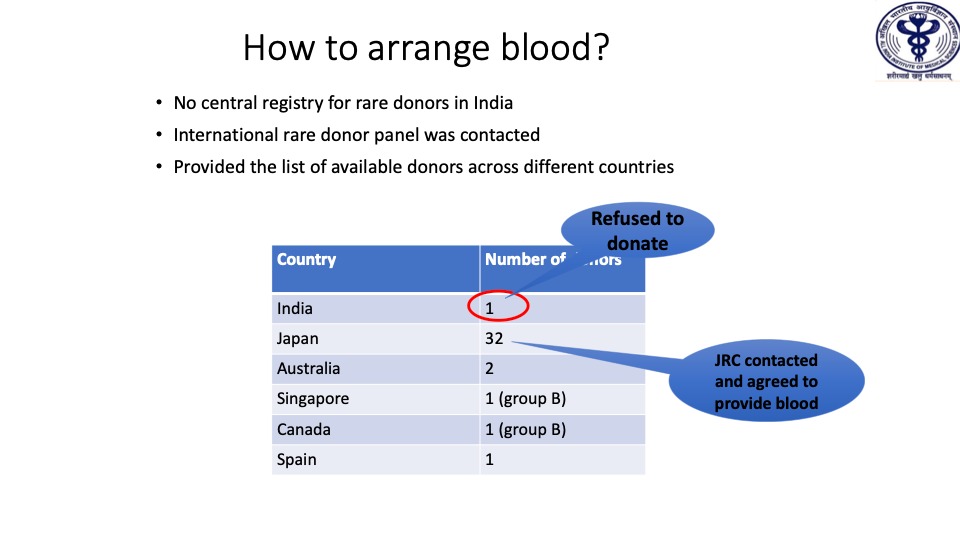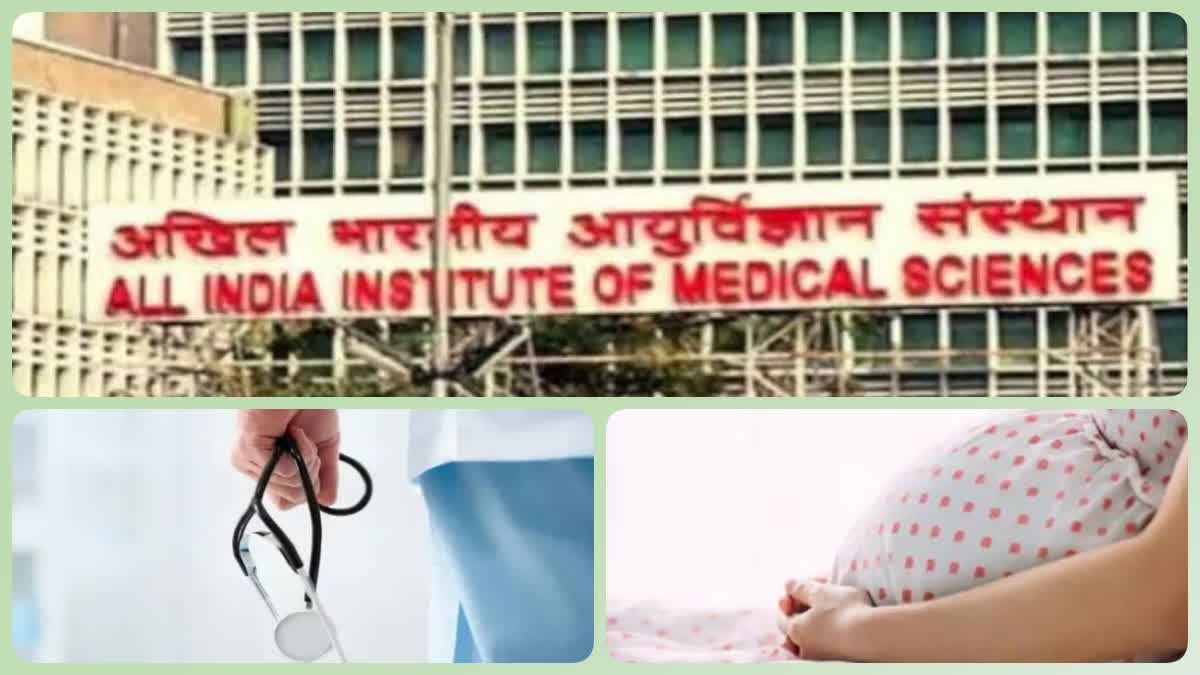New Delhi: In a heartening yet rarest of the rare medical feat, doctors at the Delhi AIIMS (All India Medical Institute of Science) have miraculously saved the life of an unborn child suffering from a rare type of anemia inside the womb of the mother by providing it with the rare blood group arranged all the way from Japan. After successful delivery, both the mother and the newborn have now been discharged after six transfusions of the rare blood into the unborn child for eight months of the woman's pregnancy.
Divulging further details into the rare medical feat, Dr Neena Malhotra, leading Gynecologist at AIIMS Delhi told ETV Bharat that the 24-year-old woman from Haryana Poonam and her newborn named 'Tapasya' have been discharged from the hospital and both are healthy.
Dr Neena informed that the woman, who was referred to the hospital from Lady Harding in Haryana was suffering from a rare disorder in which the mother has a negative blood group while the child has positive blood group. Due to the disorder, antibodies are formed in the mother's blood which are transmitted to the child's body destroying the red blood cells of the child's blood leading to blood deficiency in the child or anemia, Dr Neena explained.

“If the child is not provided with the required blood, it may die inside the mother's womb,” she said. In the present case of the Haryana woman, it was all the more complicated as Dr Neena said that the woman had a rare blood group which they could not be arranged in India. With the help of NGOs and social workers, the blood was traced to a blood bank in Japan and brought to India in two consignments in two flights, she said adding the blood was transfused to the fetus inside the mother's womb.

Dr K Arpan, another Gynecologist at AIIMS Delhi said that the blood was transfused into the fetus in six sittings through the intra-uterine procedure for 32 weeks. She said that the procedure was challenging given the rares of the rare 'Rh 17' antibody in the fetus's blood. Dr Arpan said that Dr Hemchandra Padma, Additional Professor in the AIIMS blood bank detected the rare antibody. Once the blood was traced to Japan blood bank, its timely delivery to the hospital was the key as the fetus was on the cusp of a heart failure, Dr Arpan said. With the team work of staff and NGOs, the blood was transfused into the fetus. “Both the mother and the newborn were discharged after successful delivery. The familu has named the newborn 'Tapasya' and rightly so,” Dr Arpan chuckled.

Doctors said that the woman who finally delivered a healthy child has given birth to as many as eight children since five years of her marriage. The family has expressed gratitude to the tireless efforts of the doctors at AIIMS Delhi in saving the life of both the mother and the baby.



